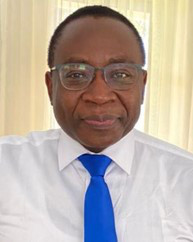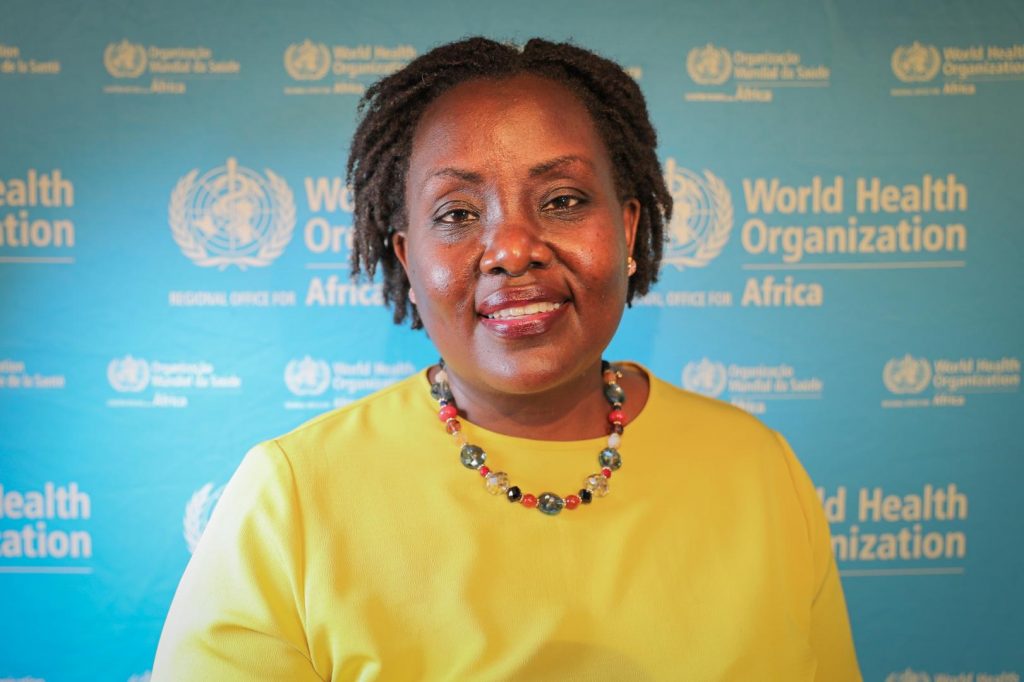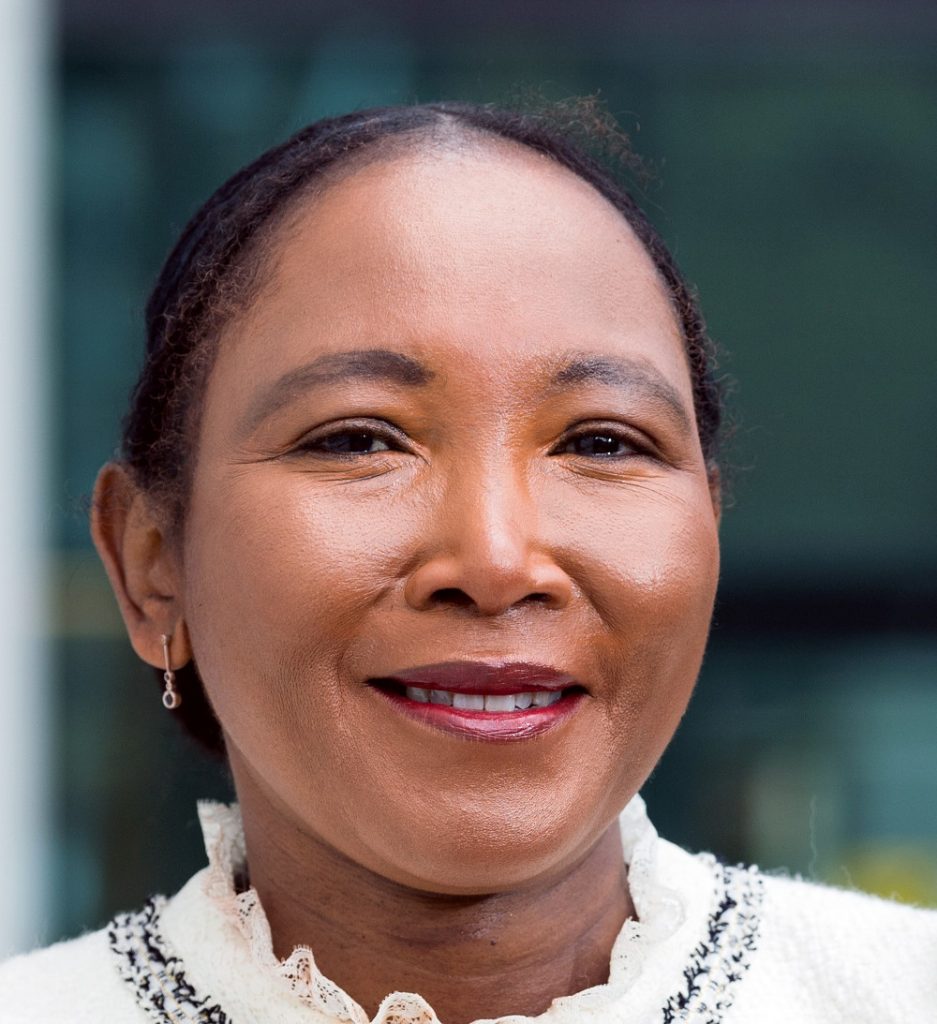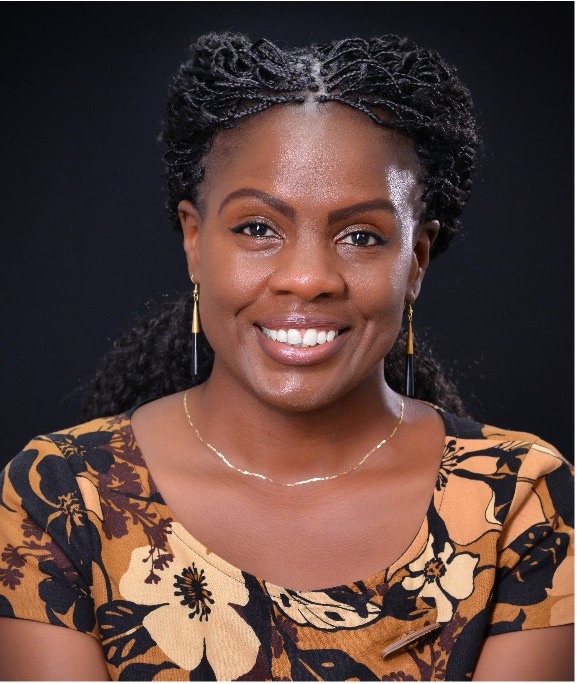Africa's Covid-19 management services must be integrated into existing health services
As the Covid-19 pandemic develops, African countries’ response strategies must shift from crisis response to long-term control strategies. The momentum of Covid-19 management must be integrated into broader health systems to achieve health equity and health security, while also ensuring that other health issues and deadly diseases are prioritised.
The continent’s leading health experts and policymakers discussed these issues in a webinar hosted by the Mail & Guardian and organised by The Conversation Africa and Global Health Strategies, with Devex as a media partner.
More finance for health systems
All of the speakers agreed that significantly more financing is required for stronger African health systems. The goal is for each African country to spend 15% of its budget on healthcare; at present the average is closer to 3%.
 Dr Paul Ngwakum, Regional Health Adviser, UNICEF Eastern and Southern Africa
Dr Paul Ngwakum, Regional Health Adviser, UNICEF Eastern and Southern Africa
“Weak health systems always struggle to deal with health crises,” said Dr Paul Ngwakum, Regional Health Adviser, UNICEF Eastern and Southern Africa. Resilient systems are needed, but this requires stable governance. Primary services and preventative healthcare are top priorities. Healthcare is about overall wellness, so things like poverty and communal access to water, sanitation and hygiene must be addressed by governments.
Community health workers must be identified, trained, motivated and deployed, and a reliable system for procuring medical supplies is vital. Surveillance systems must be put in place to identify hazards timeously. All of this requires more financing, said Ngwakum.
Dr Fiona Braka, WHO AFRO, said that Africa experiences health emergencies more frequently than any other continent, but most countries lack the workforce, infrastructure and communication technology to deal with them. “Time is lost when emergency supplies have to be shipped to crisis areas; coordination levels between countries vary enormously. Sustainable and predictable financing is required to create adequate stockpiles and responses to emergencies,” said Braka.
 Fiona Braka, WHO AFRO
Fiona Braka, WHO AFRO
“The time to prepare for pandemics is between them, not during them; we now have time to prepare for the next challenge,” said Francisca Mutapi, Professor in Global Health Infection and Immunity and co-Director of the Global Health Academy at the University of Edinburgh, and Deputy Director of the Tackling Infections to Benefit Africa (TIBA) Partnership.
TIBA, funded by the National Institute for Health Research (NIHR), aims to reduce the burden and threat of infectious diseases in Africa by informing and influencing health policy and strengthening health systems. It is Africa-led, which means that it responds directly to the continent’s needs. It has been busy training partner countries such as Ghana and Uganda in surveillance and genomic sequencing since 2019, which meant it was able to create meaningful data for the governments in these countries when Covid-19 struck. “If we can build on this, we can be more resilient and prepared in the future,” said Mutapi.
Dr Ahmed Ogwell Ouma, Acting Director, Africa CDC (Africa Centres for Diseases Control and Prevention) said that to boost African countries’ pandemic responses, health systems need to be strengthened to manage crises as fast as possible and information must be made available to the public.
 Portraits for the RSE of Prof Francisca Mutapi FAAS FZAS FRSE, Co-Director Global Health Academy, Deputy Director TIBA, Senior Adviser to the Principal on Africa
Portraits for the RSE of Prof Francisca Mutapi FAAS FZAS FRSE, Co-Director Global Health Academy, Deputy Director TIBA, Senior Adviser to the Principal on Africa
“Covid-19 was about vaccinating adults, whereas most vaccines before it were for vaccinating children,” said Ouma. Adults are hard to access as they are busy earning a living, and they must be educated to accept interventions. The stigma surrounding diseases like Covid-19 must be dealt with; and health workers must be prepared and be well protected from catching diseases like Covid-19.
Significant investment must be made in healthcare and sanitation systems to minimise disruptions to the whole of society. Governments must invest more, and this requires political commitment to uphold what Africa CDC calls the “new public health order” (NPHO). “We must address health at national and regional levels, and provide the resources that will give Africa CDC the space it needs to work,” said Ouma.
Africa CDC’s target is to reach 60% of vaccines manufactured in Africa by 2040. To reach this goal, infrastructure is required: both the technology and technological know-how. More research and development needs to be done locally, and a lot of training is required. The market must also be secured, through the African Continental Free Trade Area (AfCFTA), by engaging with philanthropic concerns so that they buy from Africa first, and by encouraging Africans to buy local products.
 Dr Ahmed Ogwell Ouma, Acting Director, Africa CDC
Dr Ahmed Ogwell Ouma, Acting Director, Africa CDC
Self-reliance, preparedness and rapid response in future pandemic scenarios
Dr Githinji Gitahi, Group Chief Executive Officer, Amref Health Africa, said the lessons learned from HIV, Ebola and Monkeypox should have been put into practice by the time Covid-19 arrived: “It was only when Monkeypox spread beyond the continent that the world took notice of it.” What Africa needs is not just self-reliance, but mutual partnerships with the rest of the world, as a healthy Africa means a healthy world. Africa must have ownership of its health security; it must uphold its NPHO, and all its countries must work together, with a common mandate.
Gitahi said Africa must become part of the global supply chain, creating not just “token vaccines” for itself, but for the rest of the world as well. One health system is required that is resilient enough to respond to emergencies. Global stockpiles of vaccines often cannot be accessed until diseases spread beyond Africa; stockpiles must be brought closer to where the emergencies most frequently recur.
Dr Norah Obudho, East Africa Program Director, WomenLift Health, addressed inequity in the healthcare sector. She said we often find ourselves caught up in the “panic-neglect” cycle: “When there is a health issue in the Global North, it is dealt with, but then the support ebbs away, and the recurrence issues in the Global South are neglected.”
 Dr Githinji Gitahi, Group Chief Executive Officer, Amref Health Africa
Dr Githinji Gitahi, Group Chief Executive Officer, Amref Health Africa
Dealing with HIV, TB and malaria has taken a back seat because of Covid-19; in many countries, resources were redirected. Investing in these diseases is essential for equitable and resilient health systems. “A multi-sector approach is vital, so that resources can be pooled, and this will be synergistic: nobody is going to lose if health systems are strengthened everywhere,” said Obudho.
Braka said that the World Health Organization has recently set up three flagship programmes to help Africa deal with health emergencies. They are Promoting Resilience of Systems for Emergencies; Transforming African Surveillance Systems; and Strengthening and Utilizing Response Groups for Emergencies. The objectives of the flagships are to support member states to prepare for and prevent disease outbreaks and health emergencies; promptly detect, speedily report, and confirm outbreaks; and to strengthen and sustain their capacity to promptly respond to, and recover from, the negative effects of outbreaks and health emergencies.
The provision and distribution of life-saving commodities in Africa will be improved by these flagship programmes, as will rapid financing mechanisms in emergencies. Early detection will be improved, through community and data surveillance. Governments will be better able to respond within 48 hours to emergencies, as “this is a critical time period”. Responses will be coordinated both at regional and national levels; partnerships are paramount for this, and, importantly, communities will be engaged.
Focus on preventative healthcare
 Sara Jerving, Senior Reporter, Devex
Sara Jerving, Senior Reporter, Devex
“Immunisation services must continue, even when pandemics are raging, as prevention is cheaper than cure,” said Ngwakum, but this requires resilient systems. Governments must have information on “zero-dose communities” (where children have not had a single vaccine) — who needs vaccines the most, and where — as well as strategies to reach them. We cannot have stockouts, where vaccines are not available, as this can amplify outbreaks. The community must be engaged for essential information. We must use the additional resources that became available during the Covid-19 pandemic. Platforms for monitoring must be set up that recognise where there are emergencies and shortages, and the data must be digitised.
As Ouma pointed out, one lesson that all countries learned from the Covid-19 pandemic was that healthcare is THE top priority, as nothing can function properly without healthy people.
Gitahi said that wise choices must be made when it comes to government investments in the health sector — preventative healthcare is vital and saves millions. All health services must be functional, and of optimal quality. Despite the physical, fiscal and infrastructural challenges that many African countries face, the focus must be on equity, quality and efficiency, to improve health outcomes. In particular, women, children and the most vulnerable must be prioritised.
Obudho said women’s sexual and reproductive health systems must also be prioritised. She pointed out that even if the services and products are available, women are not always in a position to access them. “We must also take an engendered approach: women must be represented on these issues at decision-making tables in the medical hierarchy,” she said.
 Dr Norah Obudho, East Africa Program Director, WomenLift Health
Dr Norah Obudho, East Africa Program Director, WomenLift Health
Mutapi said that if neglected tropical diseases (NTDs) are brought under control, African countries can focus on other priorities. The Kigali Declaration was made recently concerning the eradication of NTDs, but “the pledges made by various organisations and countries must be honoured”. For instance, in 2021 the UK withdrew £150-million, meaning that 250-million Africans did not receive treatment, and 180 000 surgeries did not take place. NTDs and many other diseases are caused by poor water infrastructure, sanitation and hygiene – investing in these areas is not only fundamental to public health, but also improves school attendance, contributes to livelihoods and helps build resilient communities.
What is investment in health, asked Gitahi? For instance, investing in education about nutrition or sanitation services promotes health, and saves money in the long term. “There are so many choices, and so little budget available,” he said, reinforcing the importance of governments making smart investments that maximise health resources, strengthen primary healthcare, and address national health priorities. Ngawkum reiterated the importance of preventative and cost-effective health interventions – such as routine immunisation, health education, and prevention of other diseases like HIV – to give the best returns on investments.
Summary
Sara Jerving, Senior Reporter at Devex, who moderated the webinar, concluded that the future of health system strengthening in Africa should include expanded local vaccine manufacturing capacity, stronger public health institutions, integrated services, and stronger primary health services and universal health services. She also highlighted the importance of integrating Covid-19 management services into existing health services, and doubling down on managing the other epidemics and deadly diseases that have lost ground in recent years.